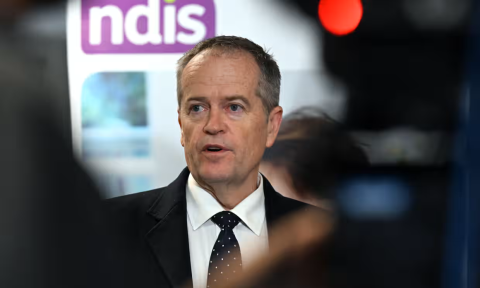
Autistic people and those who support them know one thing to be true: wait long enough and we’ll be back in the news again.
In mid-November, an internal review paper suggested that NDIS funding could be “incentivising” families to seek autism diagnoses for their children. The paper was widely reported upon in Australian media but, by the time it was criticised by disability advocates, a particularly cruel narrative about autistic people had once again reared its head. As an autistic person, and a psychologist who works to support them, we are troubled by the often irresponsible reporting regarding autism and the NDIS.
We do not expect every journalist to be able to parse the complexities of psychology research but there are basic standards for reporting on scientific findings. These reflect the responsibility that journalists have to critically evaluate what they are presenting.
When reporting of the type we’ve seen this past month intersects with a lack of media literacy in readership, data that is simply correlational posited by initial research can quickly become accepted as fact. Correlational studies tell us that two things seem to be happening at the same time, and that we should investigate further: they are a prompt, not a final word.
More rigorous research has established that the increased rate of autism diagnosis in Australia stems from improved diagnostic processes and a developing understanding of the different ways that autism may present. Long-term studies that take other variables into account have demonstrated that rates of autism diagnosis have increased over time in Australia before the rollout of the NDIS.
It is also widely acknowledged that there has been a “lost generation” of autistic people who, for a variety of reasons, were not diagnosed in their youth. Many of these people – Clem included – have been diagnosed later in life due to the aforementioned improvements in diagnostic processes.
Popular narratives about the so-called “epidemic” of autism in contemporary society typically do not make the distinction between autistic people and diagnoses of autism. To put it in laypersons’ terms, it is not that there are more autistic people in general, it’s that more of those people are receiving diagnoses of autism rather than going uncounted.
Autistic people are the largest cohort of NDIS participants. It follows, then, that bad-faith commentary treats autistic people as fat to be trimmed from the NDIS. Just this week, reports of a looming showdown between Bill Shorten, the minister for the NDIS, and state and territory governments have struck fear into the hearts of NDIS participants and, once again, links have been made to the cost of autism supports.
We both engage directly with the NDIS: Ali as a psychologist supporting autistic adults via the scheme, Clem as an NDIS participant. The reality of accessing the NDIS, with all its bureaucratic eccentricities, is often like a second job for participants. Still, it can be life-changing, particularly for autistic young adults and adults who are likely to experience financial stress. The unemployment rate for autistic Australians is 31.6%, three times the rate of people with other disability, and nearly six times the rate of people without disability.
As the review paper ironically illustrates, however, there is an ever present threat of funding being withdrawn by decision makers within the NDIS who aren’t accountable to clinical expertise.
This threat of funding withdrawal generates a huge degree of anxiety in the support that professionals like Ali provide to clients, and presents a barrier to engaging in much-needed therapy: what if the rug is ripped out from under us just as we were getting somewhere? How can NDIS participants work towards their stated goals – a cornerstone of the scheme – when therapeutic practices that may take several years to bear fruit could be deemed to be of poor value for money only one or two years in?
Commentary surrounding the NDIS has shades of the shameful “dole bludger” discourse that took hold during John Howard’s prime ministership. In place of the apocryphal burnouts “sponsored by Centrelink” are people playing up their disability to dine out on your taxpayer dollars.
In this rogue’s gallery of drains on the public purse, autistic people are cast as chief villains. They and their families are implied to be cravenly playing up their autism, or falsely accruing diagnoses, in order to access the fantasised treasure trove that is the NDIS. In a climate where the NDIS – and its perceived drain on public funds – is already a hot-button topic, care must be taken to ensure that already vulnerable people are not adversely affected by irresponsible commentary.